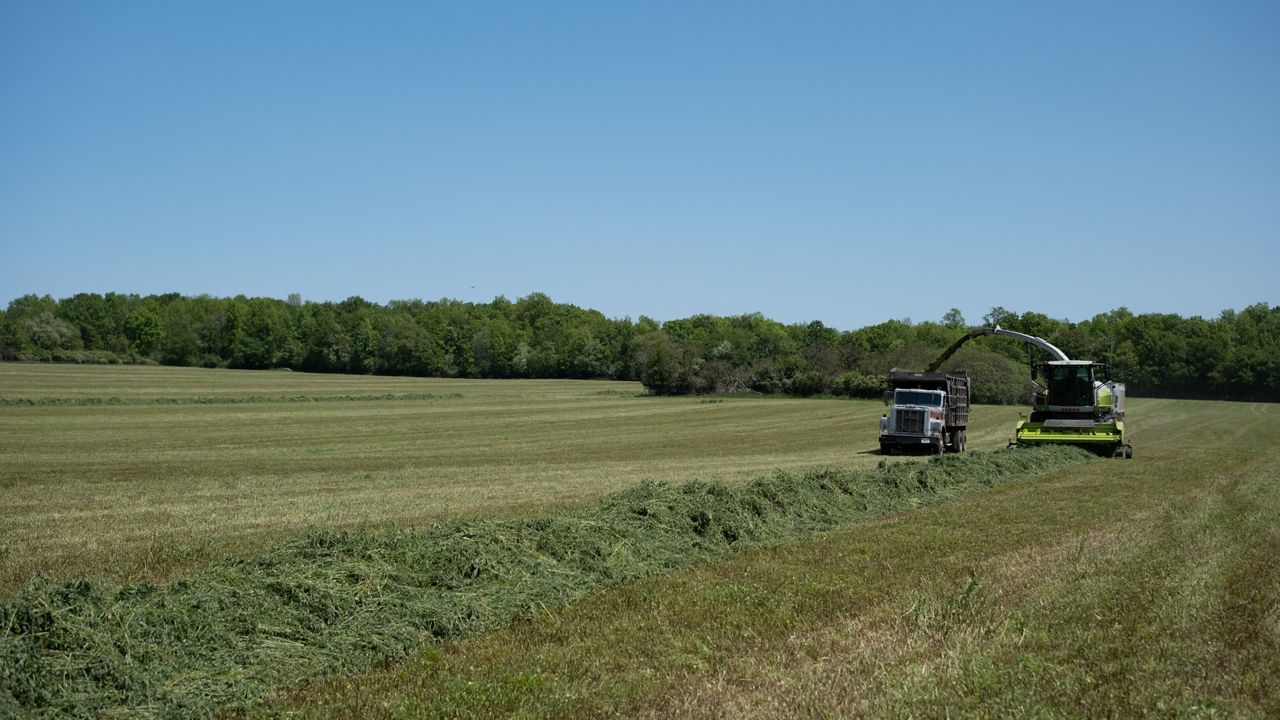New York agriculture leaders at a summit in Syracuse this week voiced concerns for the 2023 Farm Bill and other regulations coming soon for farmers.
“With costs going up, we’re just concerned about what money is going to be available for the Farm Bill, and if we get it done,” said David Fisher, president of the New York Farm Bureau.
The 2018 Farm Bill cost $867 billion, and the Congressional Budget Office estimated in May that the total spending projected for the 2023 Farm Bill is $1.51 trillion – the first trillion-dollar Farm Bill in history. The bill is renewed every five years.
Fisher, also a dairy farmer in St. Lawrence County, said they hope to maintain some of the baseline funding for the federal bill expected to be debated in Congress in the coming weeks.
“We want to keep it the same or more,” Fisher said. “We have some asks around dairy like the Dairy Revenue Protection and Dairy Margin Coverage programs.”
The margin coverage program protects dairy farmers when the margin between milk prices and feed prices falls between a certain dollar amount, and the revenue protection program softens the blow when there are unexpected changes in quarterly milk prices, according to the USDA.
New York producers also grow crops like apples and grapes that are considered specialties.
“The Specialty Crop Block Grant Program is really important for a lot of growers, and we want to be sure to keep that,” he said.
The program helps specialty crop producers increase competitiveness for their crops and provides funding for marketing, research and education, according to the USDA.
Steve Ammerman, director of communications for the New York Farm Bureau, said the Farm Bill has three important components for farmers.
“It helps our farmers manage risk, provides crop insurance should there be a natural disaster like a flood or a freeze, as we’ve seen this year in parts of our state,” Ammerman said.
The other two things are cost-sharing programs for conservation practices, which allow farmers to build projects that reduce runoff and protect water quality, and food assistance to those who need it, Ammerman said.
“It’s really about investing in our food system and investing in our food supply chain because food security is a national issue,” he said.
Ammerman said the farm bureau hopes political disagreements don’t delay approval of the bill.
“We’re really hoping in this political climate — everything is difficult — that we can find some consensus in Washington, because the Farm Bill is up in September,” Ammerman said. “There’s been some calls for budget cuts in the Farm Bill, and this isn’t the time to cut back on research on conservation, so we really want to make sure it is fully funded.”
In February, New York officials finalized the decrease in overtime hours for farmworkers from 60 hours to 40 over the next 10 years. The first decrease will come in January 2024, bringing the threshold down to 56 hours.
Ammerman said this has raised concerns among farmers.
“Some will be cutting hours to try and contain those costs. How will employees who want to work more hours react to that by potentially losing hours and losing income? That is a concern,” he said.
Fisher said there also are worries about how timely the state tax credit — an offset the state agreed to as part of the overtime rules — will be for farmers as managing the increased costs won’t be easy.
“Farmers are going to have to budget their spring line of credit if they need to have more money available to pay that overtime,” Fisher said. “The governor has instituted a credit, but I don’t know how workable it is. We’re working [state agriculture leaders] now to try and line that up so that it is a viable refund, but only time will tell.”



